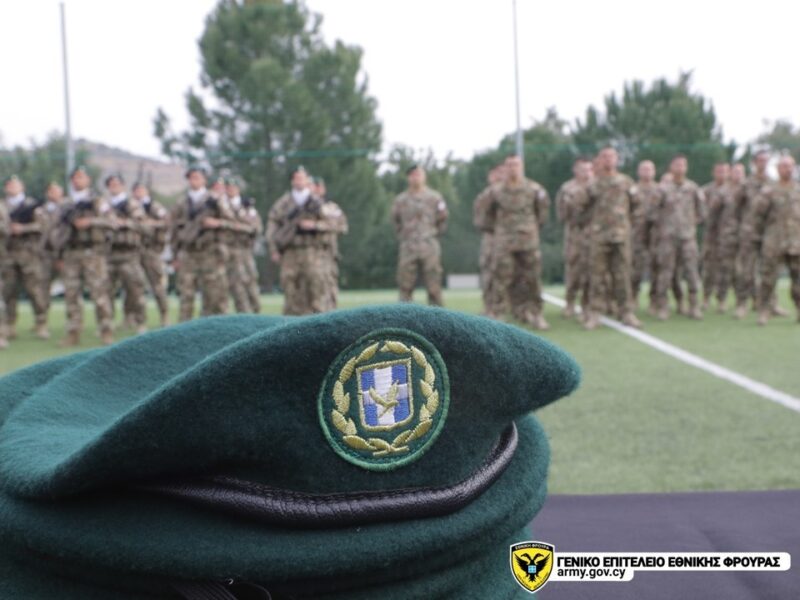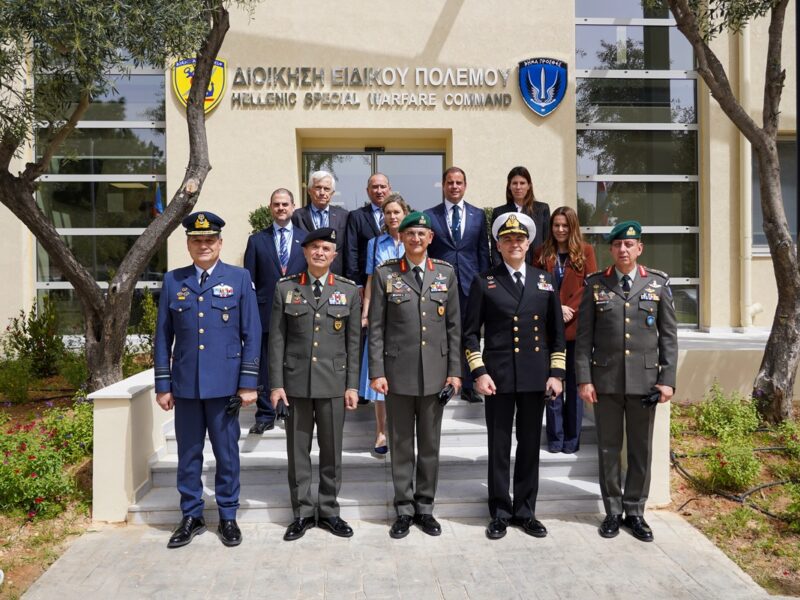By Georgios Hatzitheofanous, Major General, etc.*
Greek-Turkish disputes are not new. It is a perennial phenomenon with the tension in the post-colonial years steadily increasing due to the upgraded Turkish challenges-claims despite the intermittent recession-relaxation mainly due to the Greek retreats.
It is a matter of strategic mentality, which is shaped by the historical consciousness of the people; historical consciousness that reflects their perception of their place in the world as said in his book “Strategic Depth” by pr. Prime Minister, Minister of Foreign Affairs and shaper of Turkey’s foreign policy during the AKP years, Professor Ahmet Davutoglu. And in the case of Turkey, it is clear that the Ottoman Empire is behind all this.
During the years of the Greek deep crisis, the economically strong Turkey with the GDP reaching 1 trillion dollars in 2013 (in 2002 Turkey was coming out of the 4-year crisis with a GDP of only 240 billion dollars) with a flourishing defense industry shaped the narrative of a global “player ”, rejecting the role of regional power reserved for it by the US as “instead” in our wider region.
The S-400, which has been at the center of the US-Turkey standoff and kicked Turkey out of the F-35 program, is a strategic weapon that supports the narrative of a US-independent-autonomous force that can to claim the role of global “player”. This is because it is uncontrolled by the US (and Israel) precisely because they cannot interfere with its software as is the case with all US weapons systems. This also explains Turkey’s persistence despite the significant consequences it is suffering. In this sense, any removal of the S-400s may be an indication of a change of course. In the same direction as the S-400 (reliance on the US) and the domestic defense industry.
Time horizon of the vision of the world power, participating as a co-shaper in the new world order, in 2023, 100 years since the foundation of the new Turkish state. With influence in the countries from the Adriatic to the Caspian sea, with a presence on three continents, it shaped the vision of the Blue Fatherland without taking into account the weak Greece. You cannot follow us, the Turkish Ambassador to Greece said according to reports, reflecting Turkey’s perception of our country.
The Trump Presidency favored Turkey’s plans, which saw the vacuum created in the region by the US withdrawal as a great opportunity. The excellent personal relationship that Erdogan developed with Trump, who publicly declared himself an admirer of the Turkish President, and the financial relations between them through their sons-in-law according to reports, ensured the tolerance if not the support of the American President in the implementation of his plans. This situation gave Germany the necessary legitimacy to show the same tolerance to Erdogan’s plans as it did not wish to come into conflict with Turkey with which the Germans have always had good relations for certain reasons. This is how the EU’s stance on the Greek-Turkish disputes is justified.
But everything changed after the election of Biden and the return of the US deep state. The return of the USA to the region, the excellent relations with Greece, with a new five-year agreement between them, which upgraded the country’s geostrategic position and led to new strategic partnerships with many countries in the wider Middle East and of course the Greek-French Agreement as well as and beefing up the armed forces with a remarkable program undermined Erdogan’s narrative. The culmination of all this was the trip of our Prime Minister to the USA, his speech to Congress and the cancellation of the F-16 purchase with the intervention of our country showed that everything has changed. And of course, Germany also changed its attitude, captive to the American geopolitical view, especially after the Russian-Ukrainian war. In this new environment, Erdogan, refusing to revise his vision, is looking for new strategies for his support.
However, we should point out that the West, which has no problem with Turkey but with Erdogan, whom it is destroying with hybrid operations, ardently desires the return of Turkey to its arms. The crucial question is whether this can happen or, as many claim, Turkey has definitively cut ties with the West. However, if it happens and Turkey returns with a new Kemal leader, the whole above scenario is overturned. Greece should a) take advantage of the opportunity that the current situation has created to promote our national interests with particular care and b) be ready to implement alternative plans, drawn up now, through effective risk management in case change of scenery.
In any case and regardless of the circumstances, since, as mentioned at the beginning of the article, the Turkish threat is permanent and timeless, our country is obliged to formulate a new strategic doctrine to stop the frequent challenges and tensions. This situation cannot continue. The content of this Strategic Doctrine, which is not the subject of this article (for those who are interested, it is in the second part of my Book “National Strategy-Proposal for a new institutional framework”), should be realistic, far from philosophies and smut, and to be based on the principle that Turkey respects strength and determination and despises weakness and fear. And this is especially important in the new unstable global geopolitical system where nobody knows what will happen tomorrow. Everything else is just wishful thinking, which has nothing to do with reality
*Giorgos Hatzitheofanous is Major General-Economist and author of the book “National Strategy-Proposal for a new institutional framework” the second edition of which is published by “I.SIDERI” publications.


